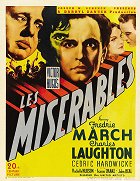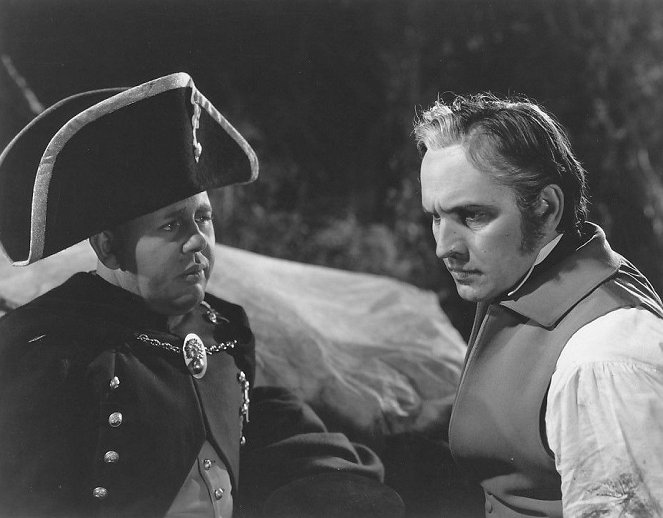Reżyseria:
Richard BoleslawskiScenariusz:
W.P. LipscombZdjęcia:
Gregg TolandObsada:
Fredric March, Charles Laughton, Cedric Hardwicke, Rochelle Hudson, Florence Eldridge, John Beal, Frances Drake, Ferdinand Gottschalk, Jessie Ralph (więcej)VOD (1)
Opisy(1)
A classic production of the 1862 Victor Hugo novel of a persecuted prisoner who escapes and tries to put his past behind him. Becoming the mayor of a small town, eventually his past and the man who arrested him return to plague him. (oficjalny tekst dystrybutora)
Recenzje (1)
The differences between the French and American transcriptions of Les Misérables from 1934 and 1935 can be used to explain the full difference between European cinema and Hollywood. One could not ask for a better example. France is realistic, faithful, unafraid of extreme length, reverential (which is not to say backward in any way), formally impressive, and influenced by Impressionism. On the other hand, Hollywood classically underestimates the viewer, shrinks the main themes to the "interesting and action-packed" and tones down anything that might get the audience too excited. Personally, I have the biggest problem with how Fantine's story turned out. It doesn't sink nearly far enough to make sense and even gets its own little happy ending in the middle of the film. It is absolutely fascinating to watch both versions side by side. Nothing against the work of Fredric March, Charles Laughton, or Richard Boleslawski, but Darryl F. Zanuck knew what he was doing. If it was just a historical rarity, I wouldn't mind. But it was this version that influenced the rewriting of Les Misérables for generations to come, who didn't even perceive Hugo.
()

